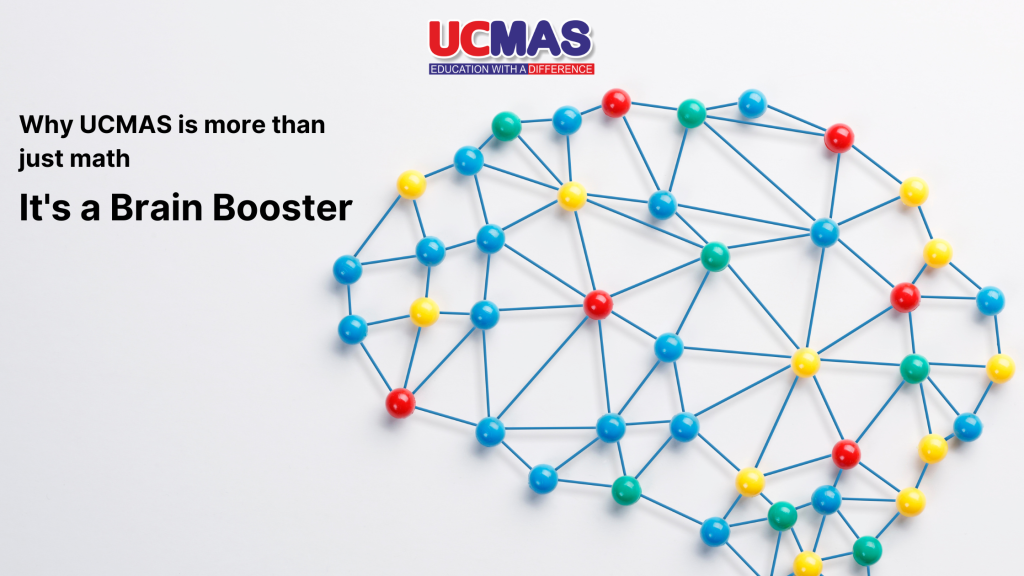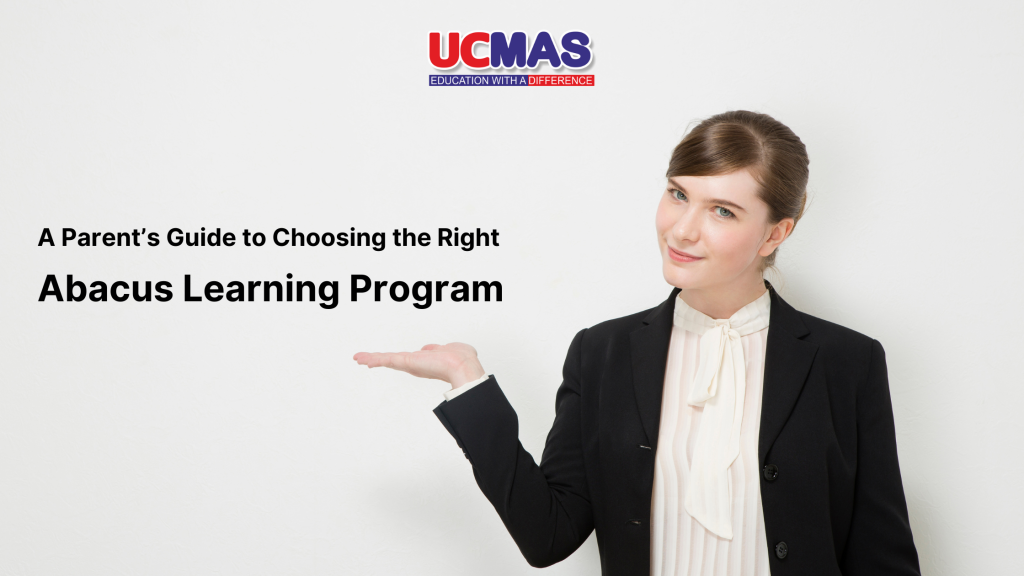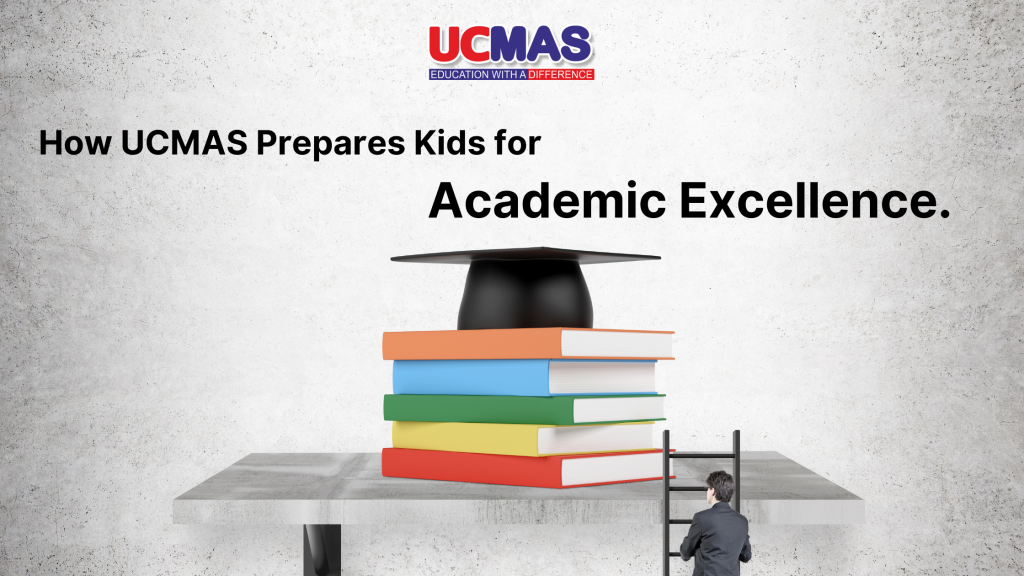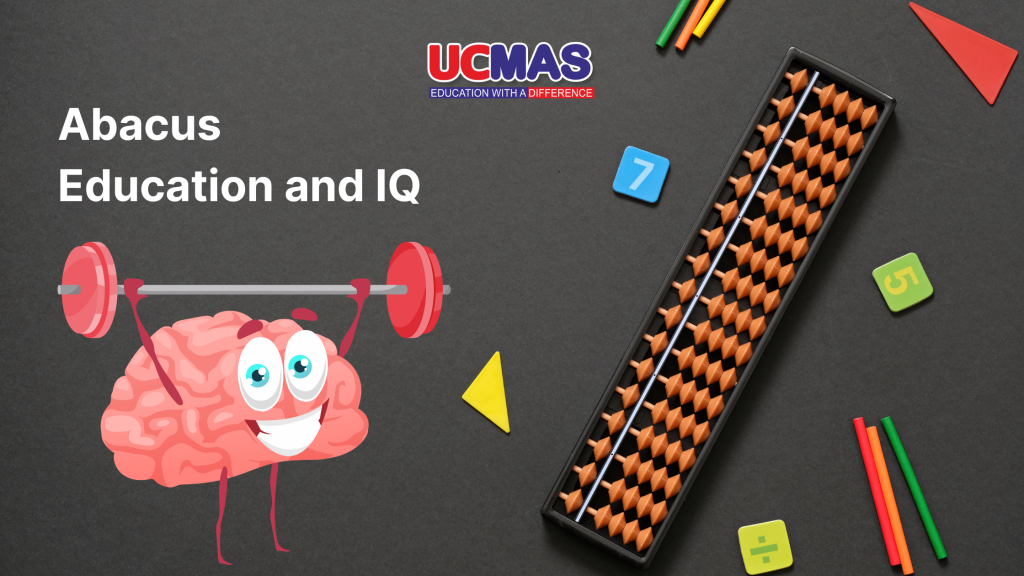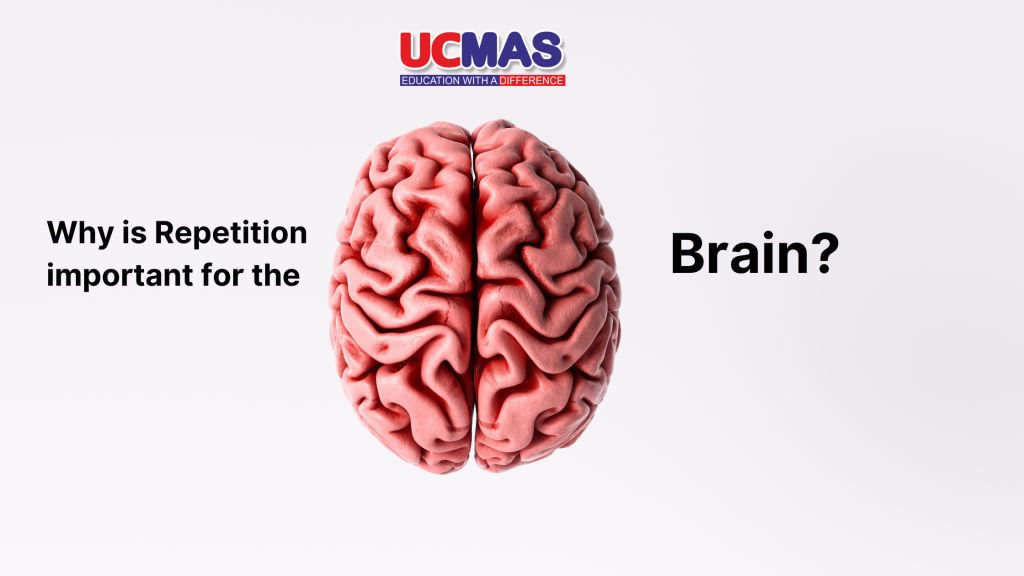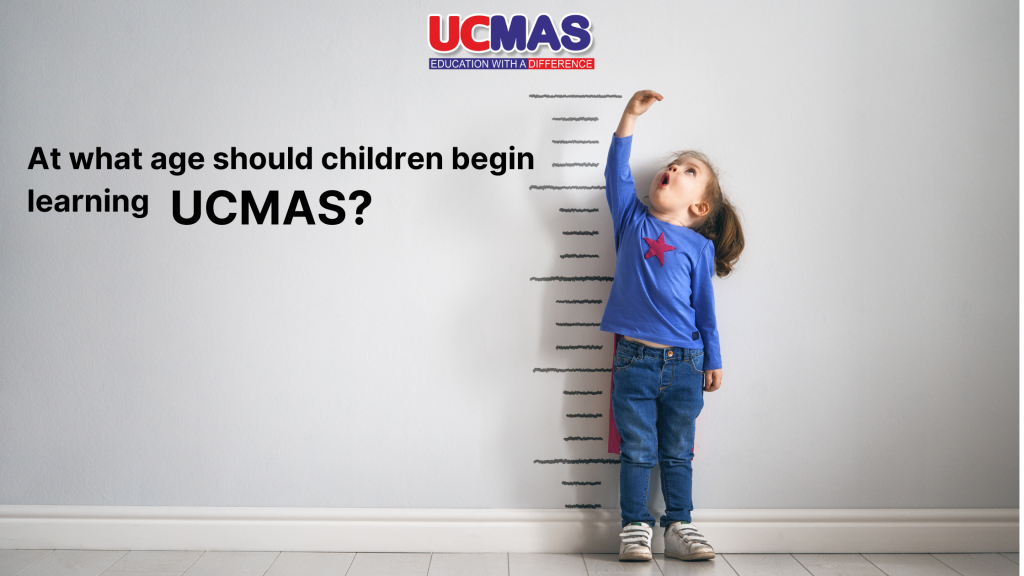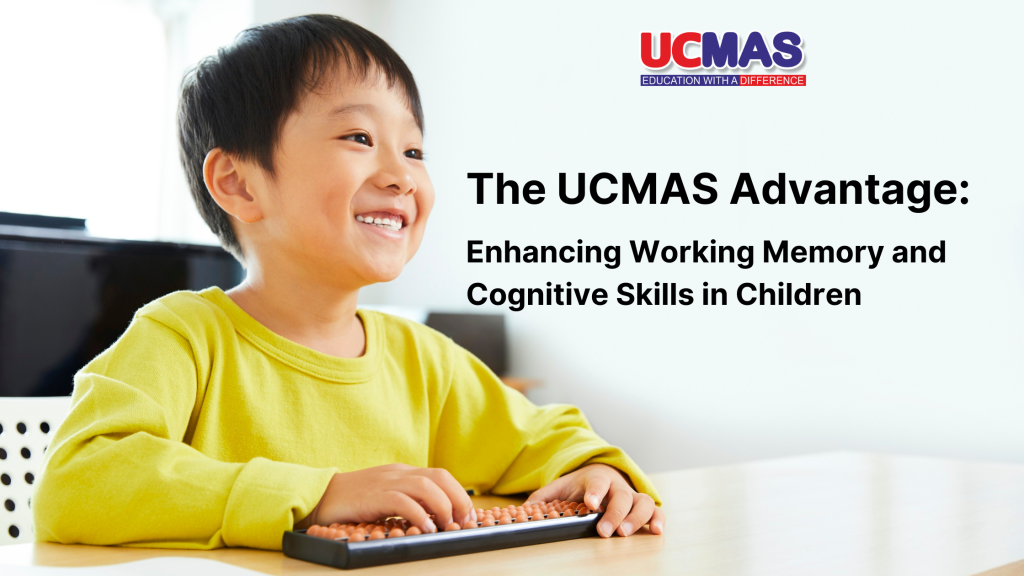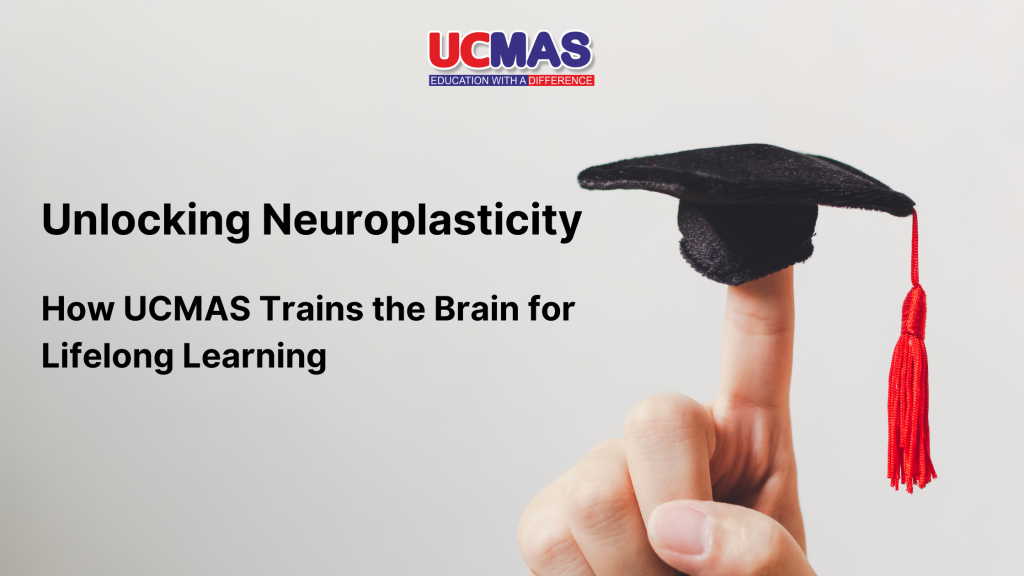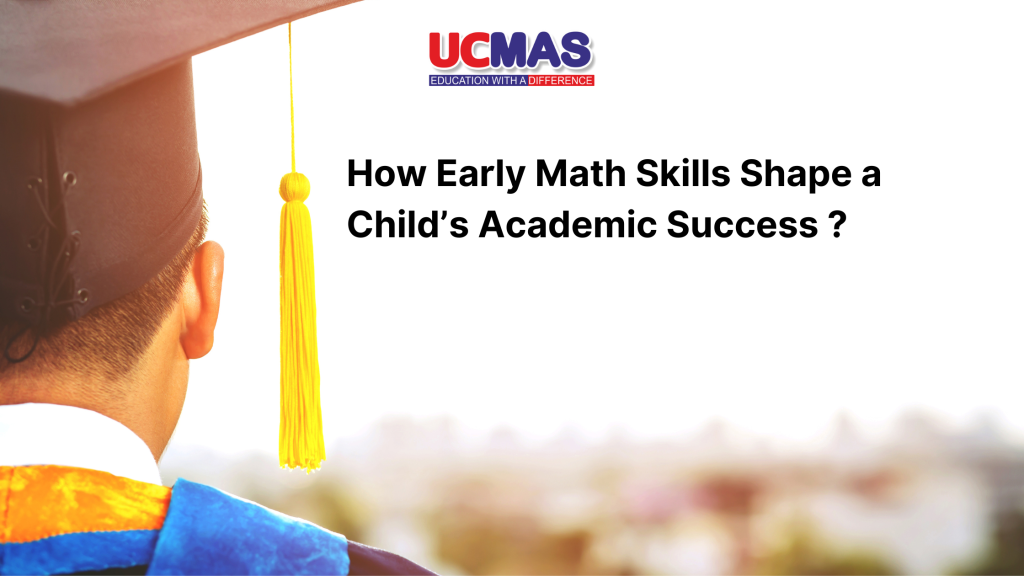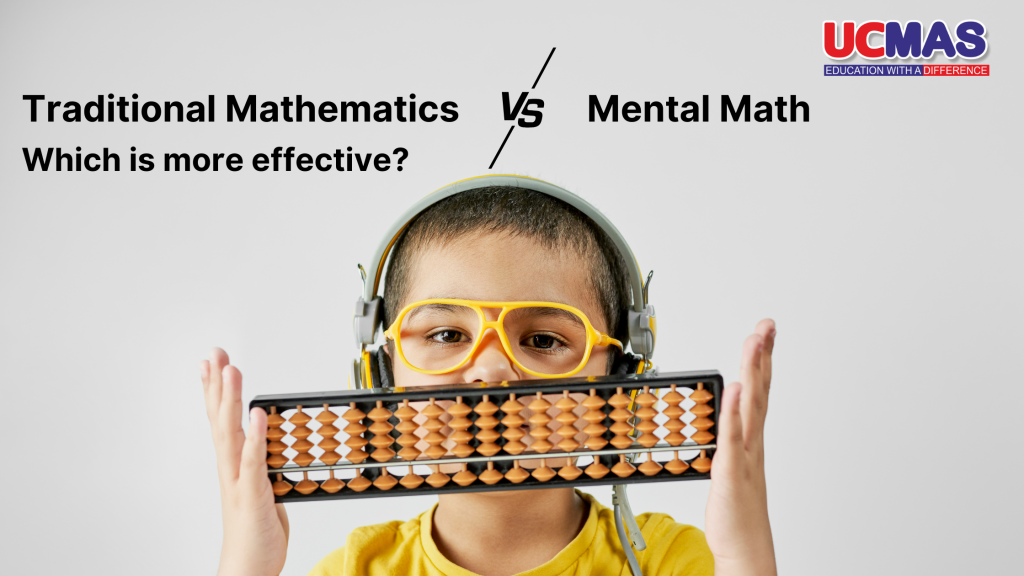Why UCMAS is more than just math – It’s a Brain Booster
Do you associate UCMAS with just Mathematics? Have you been thinking that a child enrolled in UCMAS classes only learns to solve math problems quickly? Let’s bust this myth today, UCMAS isn’t just making people sharper at solving math questions, it boosts and inculcates various other skills that one finds essential in life. UCMAS full form is- Universal Concept of Mental Arithmetic System. It is a program focused on developing cognitive skills in children, using the Abacus to perform Mental Arithmetic through guided techniques. But how does UCMAS work? Initially, children use a physical Abacus – a simple tool with beads – to do calculations. As they practice, they no longer need the physical abacus. Instead, they visualize the abacus in their minds and do the calculations mentally. This process strengthens the brain in ways that go beyond Mathematics. UCMAS is a key booster for your brain. It helps you activate both sides of your brain, thus encouraging Creativity and Logic. Apart from making math fun for students, it builds Focus, Memory, and Creativity. It boosts confidence and reduces anxiety. UCMAS Program supports overall brain development and helps children in and beyond school. Here are a few ways UCMAS boosts the brain: Through these examples, we understand that UCMAS isn’t just confined to mathematics and solving tough calculations; it has many more benefits. Let’s understand these benefits better: 1. Better Academic Performance Many parents report that after joining UCMAS, their child performs better in all school subjects, not just math. That’s because UCMAS improves memory, attention, and understanding. 2. Boost in Confidence When a child solves a math problem like 785 + 432 – 321 + 123 in just seconds and does it mentally, they feel proud. This success builds self-confidence. In many instances, a shy student is reported to become more extroverted after going through the UCMAS program. This additional and newfound confidence may spill over into sports and public speaking and more. 3. Faster Decision Making UCMAS helps kids make decisions faster. This is because their brains are trained to think quickly and logically. This can especially be useful to children who are planning for a trip that involves careful planning and equipping themselves for any last-minute changes or tackling a medical emergency to help a loved one. With the help of these examples, we have established that UCMAS isn’t just about math but is an extremely vital element for our mental health. UCMAS is a major component that boosts Arithmetic Mental health. What is Arithmetic Mental Health? Arithmetic mental healthmeans how doing math (especially mental math) helps keep your brain healthy, strong, and active. Just like physical exercise keeps your body fit, solving math problems in your head is like exercise for your brain. It helps your brain stay sharp, focused, and calm. Arithmetic and Mental Health – What’s the Connection? Doing mental arithmetic is good for your mental health. This is especially important in today’s digital world, where children spend hours on screens. UCMAS gives them a screen-free activity that’s both fun and good for their brains. This Helps with – Good mental health doesn’t come from just relaxing or avoiding stress. It comes from training the brain, just like we train our muscles in a gym. UCMAS is like a brain gym. Even after kids stop doing UCMAS formally, the skills stay with them. In interviews, many doctors, engineers, and even artists who learned UCMAS as children say it helped them think clearly and act quickly. Here are some secrets of mental health that UCMAS taps into: It’s said that your mental health is just as important as your physical health. So, focusing on your mental health is an important aspect of one’s life. A child has the power to develop extensive skills while being young, and therefore, UCMAS paves the way for them to enhance their qualities. Hence, whenever someone asks whether UCMAS is all about math, you can tell them that it’s a whole package to boost your brain. UCMAS is much more than a math program. It is a complete brain development system that helps children unlock their full potential. From improving school performance to boosting mental health, UCMAS offers long-lasting benefits. It teaches kids how to use both sides of the brain, stay focused, and feel confident in everything they do. In a world full of distractions, UCMAS is the quiet superpower that builds stronger minds and happier hearts.
Why UCMAS is more than just math – It’s a Brain Booster Read More »
